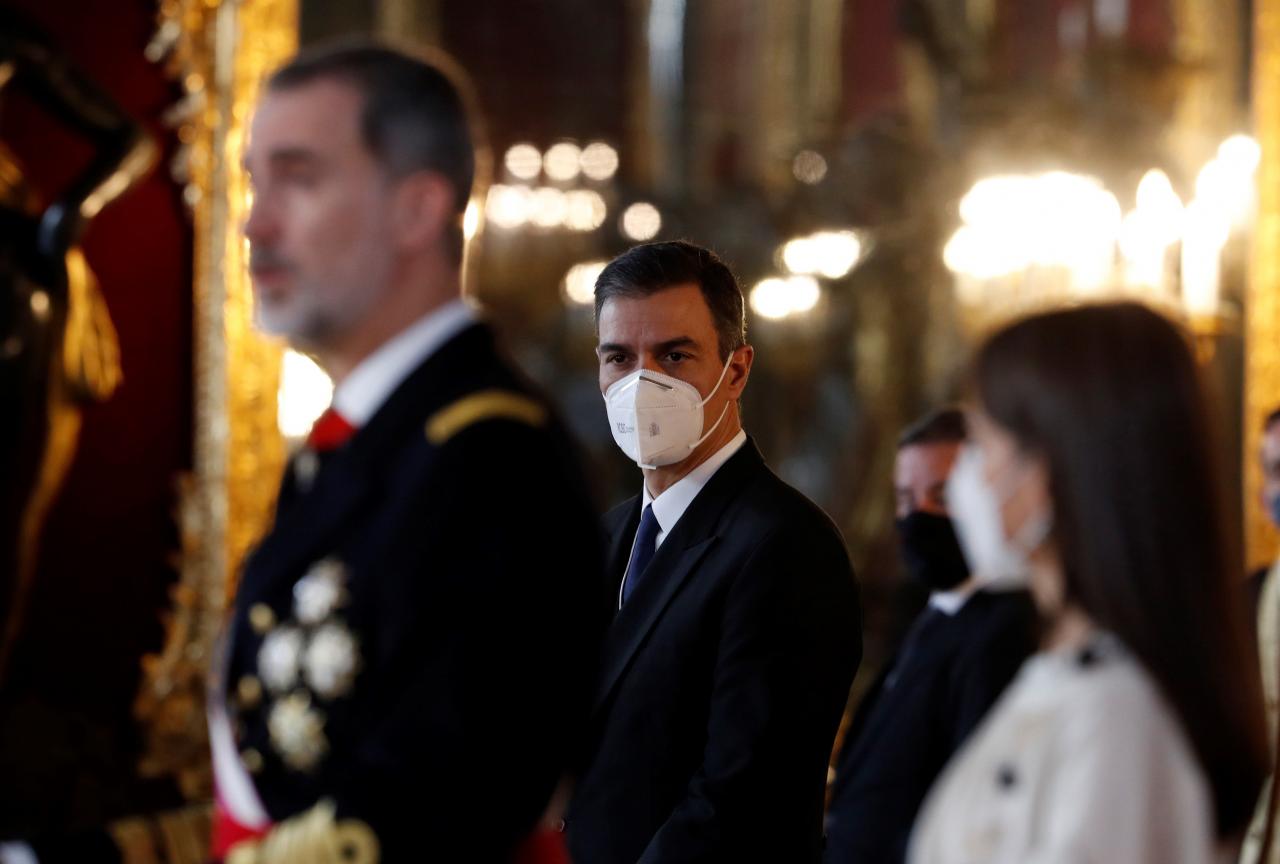There is considerable discussion regarding the possibility of a Ley de la Corona, a law for the crown that wouldn’t eliminate the monarchy but would establish - in law - what the monarchy can and cannot do. For proponents of the crown law, one element of control would apply to what can be said and what cannot be. There are those who cannot forget or forgive what Felipe said after the Catalan referendum in October 2017. His address veered too far into politics, and politics are not a possession of the royal fiefdom.
This is nonsense insofar as politics and the crown are intimately linked, no more so than in a country where the relationship and its debate is a national pastime - or at least a pastime for those whose lives revolve around politics. While the crown is apolitical, not all politics can be banished from its domain. A head of state, by definition, has to concern him or herself with matters of state.
Catalonia posited competing categories of state, and the head of state opted for the one that didn’t correspond with the aspirations of a secessionist state. Whatever was he supposed to have said, given that he is head of state as constitutionally determined? That state includes Catalonia. Perhaps, with hindsight, he should have said nothing, but by remaining silent, he would have neglected a citizenship that desired a reaffirmation of the unified state.
During his Christmas Eve message, Felipe referred to the renovating spirit that has guided his reign since the abdication in 2014. Following his message, political statements from the major partner in the government, PSOE, echoed this, going somewhat further in expressing hope for more renovation. There was no mistaking the support that was coming from PSOE - Pedro Sánchez described the message as “brave” - but there was little by way of clarity as to what renovation might be. Which is where the Ley de la Corona comes in or, in all likelihood, doesn’t.
The intimate association between politics and the crown will determine any legislative initiative. It will determine it in such a way that a Ley de la Corona never enters the parliamentary agenda. For PSOE, to admit such a legislative proposal would mean a full-on political debate, one staged in Congress for all to hear, about the monarchy or the republic. PSOE are not a republican party, but this creates a problem - Podemos want a referendum on the monarchy, while parties that maintain PSOE (and Podemos) in power are hardly advocates of the crown.
The head of the Podemos parliamentary group, Jaume Asens, said a couple of weeks ago that his party has finalised the drafting of a Crown Law designed to, for example, provide greater transparency and regulate what the monarch can or cannot say. But apart from PSOE’s huge reluctance to give parliamentary houseroom to such a legislative proposal, there are experts in constitutional and legal matters who question whether there can ever be such a law.
The Constitution, robustly and repeatedly defended on various occasions by Felipe, only makes provision for abdication and legal issues that may arise from the order of succession. As such, therefore, the Podemos law would be out of constitutional bounds, but then Podemos are agitating for constitutional reform, something else that PSOE baulk at.
The monarchy-republic question provides one of the great fault lines of the coalition government. Sánchez has insisted that the coalition remains firm, but this grand question - made ever more grand by mere running up the flagpole of a Ley de la Corona - could yet shake or break it.
For Podemos, who might not ever get another opportunity, a great set-piece of parliamentary debate on the monarchy (which would be accompanied by no little amount of grandstanding on both sides) is required by the party’s philosophy.
But such a debate would be hugely divisive: more so than without it, which is why PSOE will fight to ensure that it never takes place.
Instead, Sánchez is seeking changes to which the Royal Household can agree and that do not amount to legislation.
One concerns the inviolability of the monarch, an issue that has been starkly exposed because of Juan Carlos; he cannot be liable for and therefore tried for anything that occurred prior to the abdication.
But even this would be debatable, as it relates to an article in the Constitution, which is why other experts believe that genuine renovation will only be possible through constitutional reform and quite possibly a Crown Law.
Another awkward year lies in wait for the King. And for Pedro Sánchez.


No comments
To be able to write a comment, you have to be registered and logged in
Currently there are no comments.